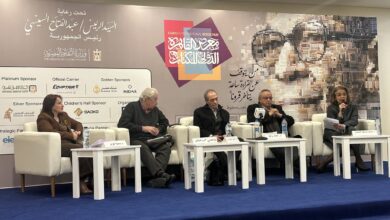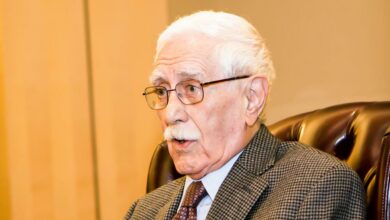Last November, renowned author Mohamed Nagy left our world at 67, just as quietly as innovators do while we are preoccupied with political upheavals. That’s how such people are destined to live: in societies that are always undecided whether to appreciate them.
To avoid the stereotypical elegiac writings on our great innovators, I preferred to reread the whole works of Nagy and write about him using his words, especially that I had come to know him through his piece, “El Affandi” (The Effendi), which he used to publish in episodes in 2008 in al-Mosawer magazine.
The Effendi was a spectacular depiction of Egypt and how it looked over the past three decades. Nagy summarizes the country’s conditions through a simple conversation with a rose seller.
-And what do you do?
-As you see, fortune-telling,…..
-You used to sell flowers?
-They are now an unmarketable merchandise. People now are not interested in flowers that can be held in the hands, they are more concerned with the unknown, they want to be reassured of the future. Life is worrying and people cannot decide what they want from it. (Dar ElHilal-2008).
I remember when I first wrote about “El Affandi”, I was surprised with a phone call from Nagy who expressed gratitude. Meeting him later, I found him to be a very noble human being, highly sensitive and very humble. Conversation with him was very amusing since he enjoys a wondrous capability to determine the value and authenticity of things; a real expert in humans, gems and artworks.
Nagy’s literary world was one of uniqueness. In his “Lahn al-Sabah” (the Morning Tune, 2005) the reader finds himself in a new popular, post-war Egyptian alley, not one of Naguib Mahfouz’s bullies and “Harafish” (commons), but rather of post-war alleys where the poor are in a conflict among each others.
In his “Muqamat Arabiya” (Arabian Prose) (Dar ElHilal- June 1999), you are met with a combination of profundity and philosophy, a text authority and how rulers manage the affairs of their subjects. It is the finest Arab modern piece of literature.
Our consolation is that Nagy had left us works that will survive. We here quote one of his concluding phrases “Maybe your grandchild, mam, will learn to breath the delight of his flowers rather than leave them to oblivion.”




